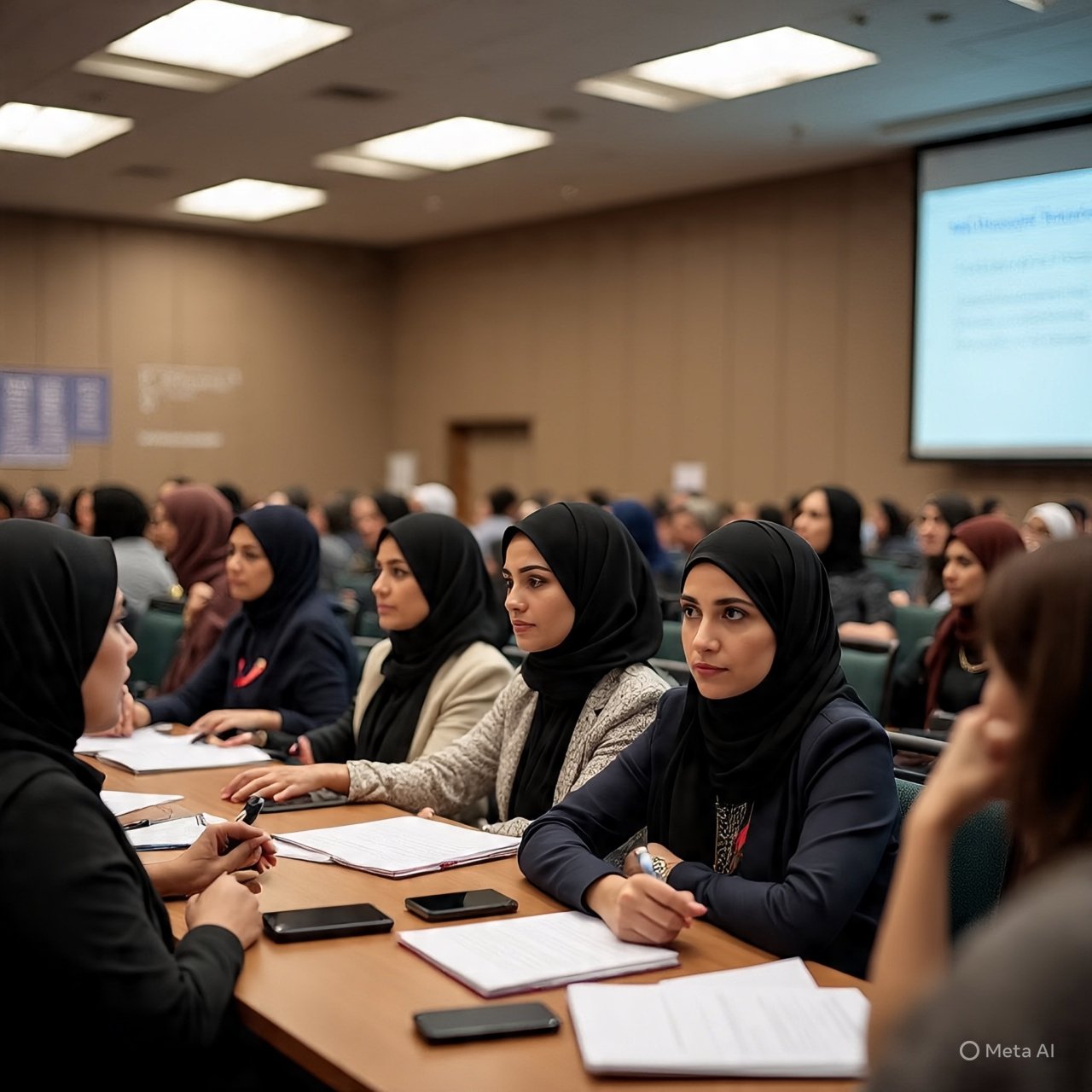Sharia-Compliant Stablecoins: Digital Revolution in Islamic Finance
Introduction
2025 is proving to be a historic turning point for the Islamic finance sector, where the global Islamic economy is witnessing a fundamental shift toward cryptocurrencies. Sharia-compliant stablecoins have not only challenged the traditional structure of Islamic banking but have also formed a new global Islamic economic paradigm. This article will cover the jurisprudential aspects, Sharia status, and economic implementation of this monumental transformation. We will see how these stablecoins are adapting Islamic financial principles to the requirements of the digital age, and also analyze their economic, ethical and social impacts.
Sharia Status of Stablecoins: Contemporary Jurisprudential Challenges
Determining the Sharia status of Sharia-compliant stablecoins is one of the most important jurisprudential issues of our time. These stablecoins actually fall under the Islamic definition of “property,” provided they contain the elements of “value” and “benefit.” From a jurisprudential perspective, stablecoins fall under the category of “goods,” whose value is linked to an underlying asset. From a Sharia perspective, it is essential that the backing asset itself complies with Sharia principles, such as in the form of gold and silver or in the form of halal trade. Modern stablecoins maintain high standards of transparency to address the jurisprudential concept of “al-gharar” (ambiguity). The backing assets of each stablecoin are fully audited and this information is available to the public. This system is perfectly in line with the Islamic principle of avoiding “al-shubuhat” (doubtful matters).
Basic Principles of Islamic Stablecoins: Modern Interpretation of Jurisprudential Regulations
Sharia-compliant stablecoins are based on the following basic principles: firstly, complete avoidance of “riba” (usury); secondly, elimination of “gharar” (ambiguity); thirdly, prohibition of “maysir” (gambling); fourthly, backing with halal assets; fifthly, high standard of transparency. The following halal assets can be used for backing these stablecoins: physical reserves of gold and silver, halal commercial assets, Islamic sukuk, and equity in halal industries. From a jurisprudential perspective, these stablecoins meet the Sharia definition of “valuable property,” because they have economic value and can be used in halal ways. This system works according to the Islamic principles of “sale,” where every transaction has clear ownership and possession.
Digital Transformation of Global Islamic Economy: New Economic Paradigm
Sharia-compliant stablecoins are becoming an important means of digital transformation for the global Islamic economy. This system facilitates trade settlement between OIC countries, reduces cross-border transaction costs, and promotes financial inclusion. From a jurisprudential perspective, this transformation is a practical interpretation of the Islamic principle of “cooperation in righteousness and piety.” These stablecoins strengthen economic integration between Islamic countries and give modern shape to the economic concept of “Ummah.” In international Islamic trade, these stablecoins are becoming a means to reduce dollar dependency, helping Islamic countries achieve economic sovereignty.
Sharia Governance Model: Need for New Jurisprudential Formulations
Sharia-compliant stablecoins require a strong Sharia governance model. This model should consist of the following elements: continuous Sharia audit, transparent operation, independent Sharia supervision, and regular compliance reporting. From a jurisprudential perspective, this system is the modern form of the historical Islamic institution of “hisbah.” The Sharia governance model should include the following committees: Sharia Supervision Committee, Sharia Audit Committee, and Jurisprudential Research Committee. These committees collectively examine all aspects of stablecoins from a Sharia perspective and adapt them to Islamic financial principles.
Blockchain Technology: New System of Transparency and Trust
Blockchain technology provides the fundamental infrastructure for Sharia-compliant stablecoins. This technology gives modern form to the Islamic concept of “trust,” where every transaction is transparent and verifiable. From a jurisprudential perspective, blockchain strengthens the Islamic system of “testimony.” This technology eliminates the jurisprudential concept of “gharar,” because the complete history of every transaction is available. Through blockchain’s immutable ledger, it can be ensured that there is no deficiency in the backing of stablecoins.
Economic Stability: New Foundation of Islamic Economy
Sharia-compliant stablecoins are becoming an important source of stability for the Islamic economy. These stablecoins are more stable than traditional fiat currencies because their value is linked to real assets. From a jurisprudential perspective, this stability is perfectly in line with the Islamic concept of “justice.” These stablecoins give Islamic countries autonomy in monetary policy and protect them from international financial fluctuations.
Digital Financial Integration: New Form of Islamic Banking
Sharia-compliant stablecoins are creating harmony with traditional Islamic banking. These stablecoins are becoming an important means of liquidity management for Islamic banks. From a jurisprudential perspective, this integration is an economic interpretation of the Islamic concept of “tawhid.” Islamic banks are establishing new systems of interbank transactions, cross-border settlements, and digital payments through these stablecoins.
Consumer Protection: Modern Application of Islamic Ethics
Special consideration is given to the protection of consumer rights in Sharia-compliant stablecoins. This system adheres to the Islamic principle of “trust.” From a jurisprudential perspective, this protection fulfills the Islamic duty of “protecting wealth.” The following measures are taken for consumer protection: complete transparency, regular audits, investor protection funds, and dispute resolution mechanisms.
Continuous Development: Evolutionary Journey of Islamic Finance
Sharia-compliant stablecoins are undergoing a process of continuous development. This evolution is perfectly in line with the Islamic concept of “ijtihad.” From a jurisprudential perspective, this development reflects the Islamic principle of “renewal.” The following measures are needed for development in this field: continuous research, jurisprudential reformulation, and technical innovations.
Global Response: New Identity of Islamic Finance
Sharia-compliant stablecoins are receiving acceptance at the global level. They are becoming a means to strengthen the global identity of Islamic finance. From a jurisprudential perspective, this response is an economic form of the Islamic duty of “da’wah.” International financial institutions are recognizing these stablecoins as a standard of Islamic finance.
Business Applications: New Means of Islamic Trade
Sharia-compliant stablecoins have opened new doors for Islamic trade. These stablecoins facilitate international Islamic trade. From a jurisprudential perspective, these applications are a modern interpretation of the Islamic concept of “sale.” The following uses of these stablecoins exist in the business sector: cross-border payments, supply chain finance, and trade financing.
Future Prospects: Digital Future of Islamic Economy
Sharia-compliant stablecoins are an important part of the future of the Islamic economy. These stablecoins are adapting the Islamic financial system to the requirements of the digital age. From a jurisprudential perspective, this future is a practical interpretation of the Islamic concept of “succession.” The following uses of these stablecoins are expected in the future: central bank digital currencies, smart contracts, and decentralized finance.
Social Impacts: Economic Development of Islamic Society
The social impacts of Sharia-compliant stablecoins are very profound. These stablecoins are promoting financial inclusion. From a jurisprudential perspective, these impacts are perfectly in line with the Islamic concept of “justice.” These stablecoins provide the following social benefits: increased financial access, expansion of economic opportunities, and promotion of social justice.
Technical Challenges: New Obstacles in Islamic Finance
Sharia-compliant stablecoins have some technical challenges, but Sharia-compliant solutions exist for them. From a jurisprudential perspective, these challenges fall under the Islamic concept of “trial.” These challenges include the following: technical complexity, regulatory hurdles, and market adoption. The following measures are needed to address these challenges: education and awareness, regulatory frameworks, and technical infrastructure.
Global Cooperation: New Paths for Islamic Finance
Sharia-compliant stablecoins have opened new paths for global cooperation. These stablecoins are promoting cooperation between Islamic countries and international financial institutions. From a jurisprudential perspective, this cooperation is a practical interpretation of the Islamic principle of “cooperation in righteousness and piety.” The following areas of global cooperation exist: research cooperation, technical cooperation, and organizational cooperation.
Conclusion: Successful Digital Transition of Islamic Finance
In conclusion, Sharia-compliant stablecoins are an important part of the future of Islamic finance. They not only modernize the Islamic financial system but also strengthen the Islamic principles of transparency, justice, and fairness within it. However, their Sharia and technical challenges cannot be ignored. There is a need for scholars, technologists, and economic experts to work together to develop a system that not only meets modern requirements but also reflects all the commandments of Sharia. In this regard, the following proposals are presented: firstly, establish permanent Sharia supervision committees; secondly, develop standard technical infrastructure; thirdly, ensure consumer protection; fourthly, run continuous research and development programs; fifthly, promote cooperation at the global level. Through all these measures, we can ensure the successful digital transition of Islamic finance.


